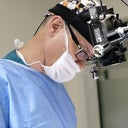Lose skin and hard bumps on nose 1.5 years after septorhinoplasty - is this callous? (Photos)
I had septorhinoplasty performed 1.5 year ago, but I still have this loose skin on both sides of the nose, in the same spots.b I have very thick skin and a lot of work was performed during surgery, but I’m worries this is not just skin shrinkage problem but maybe a side effect of surgery? I also have hard bonelike bumps on my bridge, I noticed them 2 month after surgery and they are still present, is it callus? Thank you for your time.





